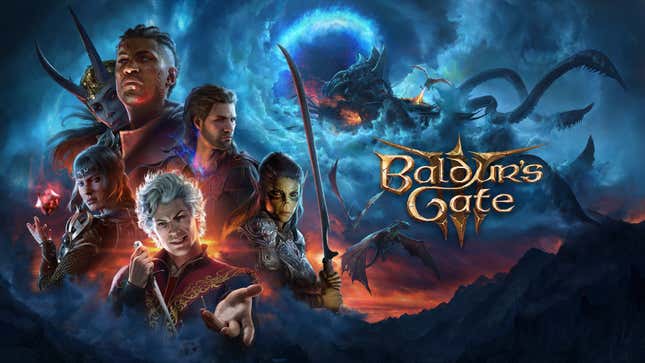
Baldur’s Gate 3 is a dense game, sometimes overwhelmingly so. The long, long-awaited continuation of the classic role-playing series has a lot of moving parts and if you’re new to CRPGs or the Dungeons & Dragons universe, it can be a lot to take in. But fear not adventurer, we’ve gathered up a few tips to keep in mind to help you make your way through Faerûn and get that disgusting mind flayer tadpole out of your head.
Delete your early access save files
Larian Studios has publicly said that anyone who played Baldur’s Gate 3’s early access should delete their old saves to ensure there aren’t any conflicts within the game’s backend while playing the full game. But for a not-so-fun peek behind the curtain, I was the person who had an issue with this during the review period, prompting that announcement. When I first started Baldur’s Gate 3’s review build, I couldn’t save the game. I didn’t realize this until I was an hour in and lost a fight and realized I had no save to load. No hard saves, no autosaves. The issue only resolved after I went into my PC’s files and deleted every save from the early access period. So I can confirm, if you’ve played the early access version of Baldur’s Gate 3, delete all those saves. Like, now. If you’re reading this during your install, find those files and delete them.
The process for this might vary depending on your PC’s setup, but to do this, open your File Explorer and type %AppData% into the address bar. Once here, click the dropdown next to AppData on the search bar and go to Local. Scroll down until you see Larian Studios. Here, just delete the whole Baldur’s Gate 3 folder. This will delete the saves from your hard drive, but also just let you start fresh for when you install the new game to avoid any kind of conflict within the backend.
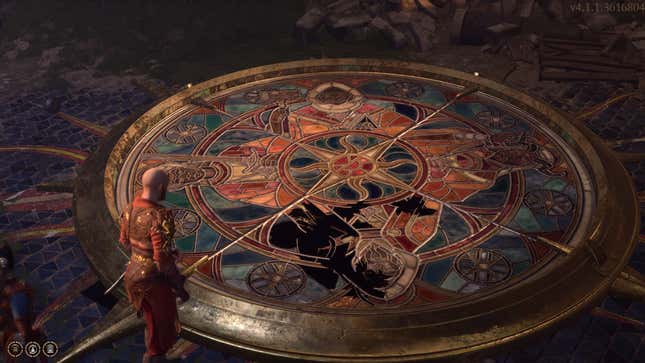
If you’re stuck, just go somewhere else
Baldur’s Gate 3 can sometimes feel a bit obtuse in its quest design because it doesn’t hold your hand. Oftentimes I would run into a wall on a quest and didn’t feel like I was getting a lot of help from my journal as to what I should do next. Some of my earliest frustrations playing the RPG had me feeling like I’d lost all momentum on a questline because I couldn’t figure out the solution for something. I have a tendency to point beeline through RPG quests, and Baldur’s Gate 3 has made me wrestle with those habits. It turns out that sometimes the best way to move forward is to simply go somewhere else and start another quest, rather than tunnel-visioning on one thing.
This is a good practice because it not only keeps you from getting stuck, but in several cases it can lead you to find solutions or helpful new context for quests other than the one you’re currently doing. That may be finding a new thing to do within a certain area or hub, or just learning something new about one of your party members while you’re on the other side of the world. When Baldur’s Gate 3 throws walls up, turn around instead of beating your head against them. The quicker you recognize when your time is better spent elsewhere, the more you’ll actually accomplish in the world.
When traveling, just click on your destination
This mostly just applies to anyone playing on mouse and keyboard, but one thing I quickly picked up on during my travels is that it’s better to just click on your destination rather than micromanage your character’s movement when you’re trying to cross large distances. Clicking on a destination will have your character automatically find the path to that spot rather than you having to guide their every step. However, do be careful when you do this in dangerous areas, because in my experience, your character can walk through hazards without a care for their self-preservation. Click on a spot in a volcano and they will often take the path through the lava when a less direct approach and a well-placed jump could have avoided the burns entirely. So use your discretion when taking this approach, but in places like forests, towns, and camp, just clicking on where you’re going is the most efficient way to get around.
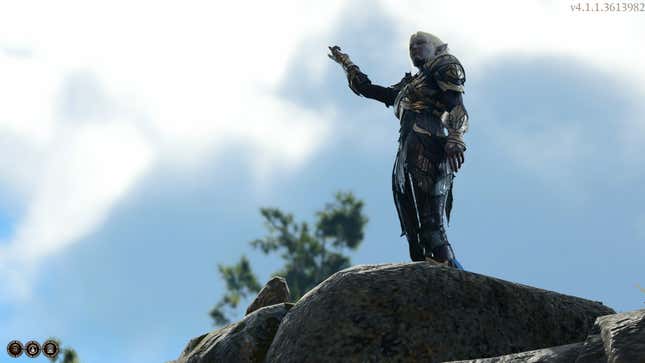
Push it real good
One of the lowkey best tools in your arsenal in Baldur’s Gate 3 is shoving enemies during fights. As a bonus action, this won’t come at the expense of your attack each turn, and it lets you push enemies a pretty respectable distance. That’s handy for helping ranged characters get some distance so they can better use their bows or spells, but it also can be a secret one-hit kill depending on the arena you’re fighting in. Shoving a character off a high point will cause them to take fall damage, and in some cases, you can send someone plummeting to their death. Characters with high strength stats are best equipped to do this, but everyone can at least try to shove an enemy before any other action, and if the dice rolls in your favor, you can send someone down a chasm. This isn’t exclusive to grunts and lower-level enemies either. I cut a fight in half by shoving a boss down a hole in the second turn, leaving me to just clean up their lackeys. I saved myself so much time and so many supplies just by leading with a shove instead of a spell. So now, every time I enter a fight I’m looking for opportunities to push an enemy to their death like I’m Gerard Butler in 300. Using abilities like Misty Step, which lets you teleport to a different spot on the map, can be real helpful in taking advantage of an enemy’s high ground.
You don’t have to use long rest to see nighttime scenes
After a long day of getting beat up by wildlife and mind flayer lackeys, you’ll have to go back to camp to heal up. There are two options for this, the most ideal of which is called “long rest” which fully replenishes your health and spells. But doing this requires resources including food and supplies you’ve picked up on your journey. Each has a point value and if you have enough to reach 40 points, you’ll get to do a full rest. If not, you’ll do a partial rest which will only heal you up to the halfway point. This is pretty self-explanatory, but there’s an aspect to resting at camp that isn’t overtly explained: nighttime character moments.
Some nights, your party members will surprise you at night with a new scene that expands upon their relationship with you, as well as with each other. But you’ll have to actually rest to see them. However, if you’re trying to see one of these events, you don’t have to long rest to start the scene. So be mindful of whether or not you need to use your supplies when you’re trying to see more story content, because you can do a simple partial rest.
Flip the barter/sell toggle
If you find yourself talking to a merchant and looking to get rid of some of the junk you’ve picked up on your travels, know that the game doesn’t default to you selling those items. Instead, it drops you into the bartering system. This means you can make a trade for some items with no monetary cost to either yourself or the merchant, but if you’re looking to get gold instead of more nonsense to carry around, you’ll need to toggle to selling your stuff instead of trading it. There’s a switch you can flip at the top of the screen, but it can be easy to miss if you just immediately start throwing junk into the barter slot with reckless abandon. So just be sure you know what you’re actually doing before you start loading up your cart.
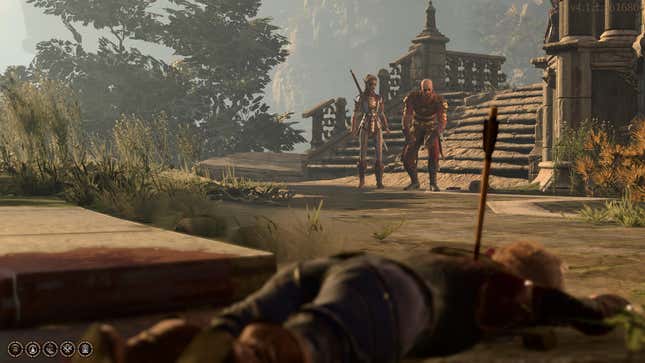
Sometimes switching your player character is the best approach
Baldur’s Gate 3’s eclectic party members come from different backgrounds and have different proficiencies, and as a result, sometimes one of your companions is just better suited for a situation than your created avatar. I’m playing as a human warlock, and while he’s spec’d to excel in charisma checks, sometimes that’s not enough. Another character’s background and expertise on certain stats can make them the ideal person to take the lead on a problem. Once, I switched control to Lae’zel, the Githyanki warrior with a connection to others of her race that my human character couldn’t overcome on dice rolls alone. Other times, characters will be able to pass a perception check or a religion check that makes them better suited to do things as simple as examine an object in the world and provide context my character can’t. So if you’re missing certain checks, try swapping to another character in your party and seeing if they notice something you don’t.
The Attack of Opportunity is your friend and foe
One of the passive reaction abilities every character has is called the Attack of Opportunity. This allows you (and your foes) to automatically attack an enemy that is moving out of close-quarters attack range for free. This is something to be cognizant of for yourself, as enemies getting up in your face means guaranteed damage even on your own turns if you try to move away from them. One way to handle this is the previously mentioned Shove ability, which will push them out of Attack of Opportunity range so you’re free to move away safely. But it also can be a strategic play to position your characters close to enemies, long-ranged ones especially, so they get caught up in the area of effect. If you do this against an archer or spellcaster, odds are they will try to move away from your character out of necessity, as their accuracy goes down if they’re too close. So even if you can’t take them out in one turn, just having your character in their proximity can score you some free damage.
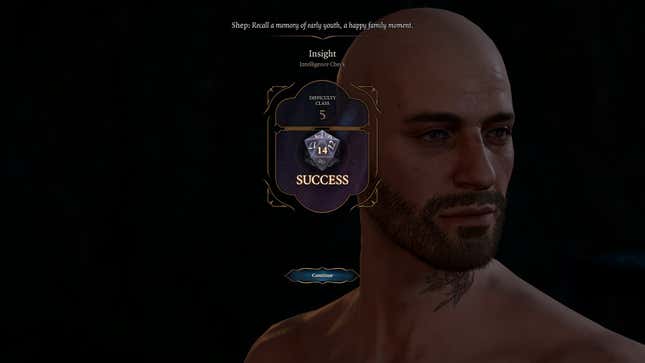
Weapon efficiency is determined by the character examining it
Something it took me a few hours to realize is that, because I was hoarding all my loot with my warlock character, I would see the prospective stats for a sword or an axe and think it wasn’t anything impressive because the numbers it showed in the menu were reflective of his stats, which don’t prioritize strength. See, Baldur’s Gate 3 tells you weapon stats based on the character whose inventory it’s in. If I took a sword from my character’s inventory and moved it to Lae’zel or Karlach, who are geared toward those kinds of weapons, I’d see much higher numbers because it was then taking into account those party members’ stats to give me a new, higher projected damage output. So if you’re looking to see if you should change a character’s loadout, move it to their inventory instead of someone who wouldn’t use it to begin with.
The word is mightier than the sword, spell, fist, etc.
I love talking my way out of shit in RPGs, and Baldur’s Gate 3 is no exception. When I made my warlock character, I spec’d hard into charisma, intimidation, deception, persuasion, and anything that would give me an edge in dialogue checks. There are so many combat scenarios I was able to circumvent with a silver tongue, and it kinda rules. The combat is great, but there’s just something so nice about talking out the ass and saving all those supplies, HP, and time, and honestly, I’ve dumped so many points into these attributes that it can kind of feel OP. I can’t think of many rolls I’ve missed on dialogue checks because I’ve pretty much ensured I’ll always have enough points at the end of each one. But for when I do need some help on that front…
Shadowheart’s Guidance is too good to not have at all times
Shadowheart, the party’s resident cleric and racist, has an ability called Guidance, which gives you an additional d4 bonus to ability checks both in battle and in dialogue. In dialogue checks, this can be applied to every dice roll, which means you will always have a buff to whatever you roll with no downside. There’s zero reason for you not to use it every time a check pops up, which means Shadowheart has become a mainstay in my party. Sure, she has healing spells right out the gate and can pack a decent punch, but I keep her around so she can make my numbers go up every time. Here’s hoping she unlearns her prejudice against Githyanki, because I’m already tired of that shit.
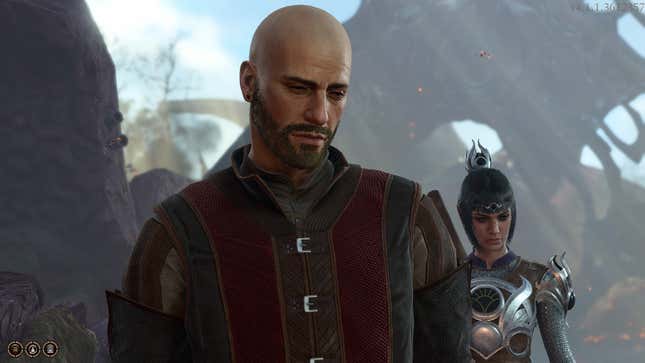
Destroy alarms and war drums as quickly as you can
Alongside looking for shoving opportunities, one of the first things you should do in a combat encounter is be on the lookout for war drums or other kinds of alarms that your opponents might be able to use to bring in reinforcements. If you spot these quickly, you can destroy them at range with a well-placed arrow or long-range spell. If, on the other hand, you don’t destroy them in time, you’ll have a whole ‘nother squad headed your way in a turn or two.
Ranged characters need high ground or they’re not going to be useful
Baldur’s Gate 3 is pretty upfront with how positioning, whether that be distance or elevation, is key to some attacks’ effectiveness. Sometimes a spell or arrow will still land if you’re on low ground or close to an enemy, but by default, you should be working toward getting your spellcasters and ranged fighters to high ground. These characters are typically not the tanky types you want hanging out with the brawlers on the ground floor anyway, so distance and high ground are always your friends for your ranged heroes.
Use your Illithid abilities sparingly
The mind-altering tadpoles in your party’s head come with a perk that lets you influence other characters with relative ease, but there are some drawbacks to using them without any kind of forethought. For one, you only get one of them a day before you do a long rest. So influencing some lowlife bandit is probably not the most economic use of this limited ability. If you want to go down this potentially dangerous path, whipping out one of your most finite resources with no regard for what it will cost is not the move.
But also, do you really want to use this dangerous weapon threatening your life? If, by using it, you become dependent on it, are you not failing in your quest to save yourself and your friends from its clutches? What if, by the end, you’ve used it so much that it easily takes over your mind and transforms you into a tentacled monster? I mean, unless you’re into that. You do you, booboo.